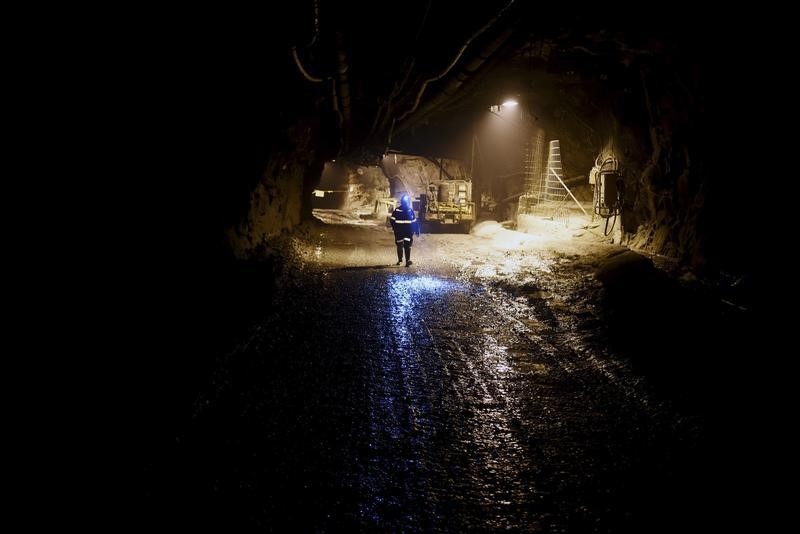By Astrid Zweynert
LONDON (Thomson Reuters Foundation) - Myanmar's decision to shake up its multi-billion dollar jade business is a ground-breaking opportunity to stop human rights abuses and increase transparency, but more needs to be done to create a more inclusive economy, activists said on Thursday.
The government announced late on Wednesday it will not renew mining permits for jade and other gemstones and that no new permits will be granted until a reformed legal framework is in place, local media reported.
"This is a game changer," Juman Kubba, senior campaigner at British-based charity Global Witness, said of the announcement.
The poorly-regulated industry, estimated to be worth $31 billion, almost half of Myanmar's economic output, has been accused of looting the country's mineral wealth with little regard for local people and the environment.
A 2015 Global Witness report said a string of military figures and drug lords secretly controlled and profited from the trade in jade, a green stone mainly used for ornaments and jewelry.
Nobel laureate Aung San Suu Kyi was swept into office in April after winning a landslide election last year, but the military, which ruled Myanmar for nearly half a century until 2011, still holds immense power.
"It suggests Aung San Suu Kyi's government is serious about reform and could help turn the page on the ruthless military rule, cronyism and human rights abuses of the recent past," Kubba said.
Deadly accidents in Myanmar's jade mining areas, where small time prospectors and big firms vie for the precious stone, have underscored the sector's lax safety rules and a lack of accountability.
Last November, a massive landslide swept through a mining encampment in Kachin State, which produces some of the world's highest-quality jade, killing more than 100 people.
The jade industry has also been accused of creating social problems since narcotics addiction is rife among gem scavengers who come to the mining areas in hope of finding lumps of jade overlooked by big miners.
The struggle over control of the jade business also remains a major driver of armed conflict between the Myanmar army and the Kachin Independence Organisation.
Matthieu Salomon, Myanmar manager for U.S.-based charity, the Natural Resource Governance Institute (NRGI), said the reported announcement opened the door to reform of the gemstone industry and an end to human rights abuses in the sector.
"It has the opportunity now to set up a framework for a responsible and sustainable business, which forms part of a broader, more inclusive economy for Myanmar," said Salomon.
Campaigners urged the government to follow up the announcement with an agreement on how to share the benefits of the jade industry in a transparent way.
The government should also introduce environmental and social measures to protect against landslides and to address local grievances fairly, the NRGI said.
As a participant in the Extractive Industries Transparency Initiative, a global standard to promote accountable management of natural resources, Myanmar should publish more data on permit holders, owners of jade companies and detailed sales records, the NRGI said.
